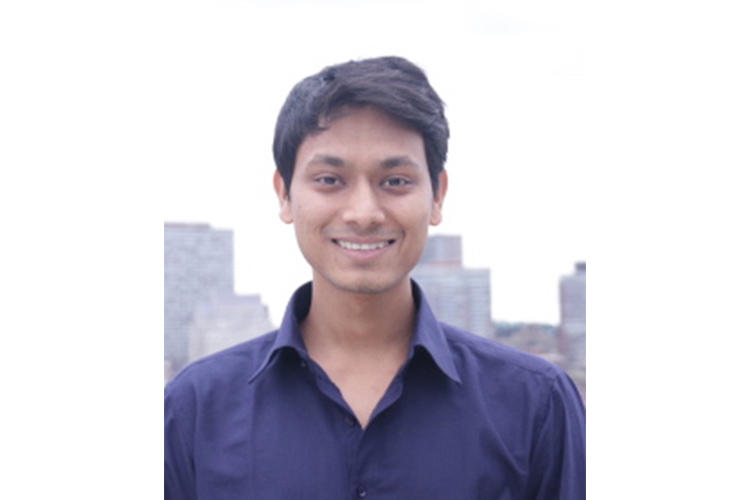First year Tata Fellow, Piyush Verma has always been interested in addressing needs which have a high social impact through his architecture and design projects.
Piyush Verma hails from the Himalayan foothills of India. Most recently, he was engaged in the development of the first-ever vernacular housing index for India. He is passionate about developing technological, design, and business solutions for social impact in resource-constrained environments. In his spare time, he likes reading non-fiction, cooking, journaling, sketching, meditating and exploring the intersections of art, psychology, and philosophy. He’s also passionate about traveling and exploring new cultures.
He is a graduate student in the Architecture and Urbanism Program at MIT. He is currently a Research Assistant at the LCAU (Leventhal Centre for Advanced Urbanism) at MIT working with Professor James Wescoat on the research and development of regional water planning in Maharashtra alongside the Government of Maharashtra, India.
What brought you to study at MIT?
Apart from the fact that MIT is the best school in my field, there are two things which got me particularly interested in this place. First, the emphasis on social impact. I think currently the work going on at MIT focusing on Indian development is larger than any university outside India. I have always been interested in addressing needs which have a high social impact through my architecture and design projects. So in that sense, MIT is the best place to be. This explains why MIT was the only school I applied to. Second, the interdisciplinary collaborations and flexibility of work across disparate disciplines. As a student with diversified experiences across several disciplines, this was a major attraction for me. It is incredibly motivating to be surrounded by students at MIT who go beyond disciplinary boundaries to tackle real-world problems. I also love the fact that my research center is situated in the MIT Media Lab complex where there is always something exciting going on. Sometimes being at MIT can be a bit overwhelming, but it’s always refreshing and motivating.
How did you become interested in regional water planning in rural and resource-constrained areas? Are you working with collaborators in India?
When I applied I didn’t know I would get the opportunity to work on this project. On the basis of my previous research work and experiences, my advisor decided to get me on board for this project. The more I am engaging with it, the more interesting it has become. Coming from urban settings, it is very easy to not recognize the problems that rural areas of India face. Water is one of the biggest issues currently in India. We are working with the Government of Maharashtra and the World Bank to ensure that all villages in Maharashtra have access to safe drinking water and sanitation services. I feel very fortunate to be part of a project which is combatting an issue of such urgency, relevance, and scale. This project has given me a solid base with which to start working on my thesis project that centers around the problem of water scarcity in the Western Ghats of India. I am going to work closely with the government officials and village leaders for my thesis.
What are the key things you’ve learned in your first several months as a Tata Fellow?
It has been eye-opening, to say the least. During the orientation trip, we met several entrepreneurs, organizations, and individuals, who have left comfortable, lucrative jobs, to work on the critical social issues facing India right now. These are the real heroes who mostly go unnoticed. One of the main aims of the Tata Center was to give us a first-hand experience of the gravity of the problems that we are attempting to solve. And I think they succeeded. The readings, assignments, and discussions in the Tata seminar have immensely deepened my knowledge about – and instilled a strong interest in – entrepreneurship. Being a Tata Fellow is a matter of great pride, but it is also a huge responsibility.
What is one book that has impacted the way you think about the world?
It is difficult to answer this as there have been some parts of so many books that have impacted my perspective. Besides architecture and design books, I am interested in topics of philosophy and psychology. I recently finished reading The Defining Decade by Meg Jay. The book talks about the importance of our twenties. It resonated with me greatly because I am now transiting from my mid-twenties to late-twenties, and this transition can be emotionally difficult. The biggest lesson from the book was to not be too hard on myself during this sensitive phase of my life. The Seven Habits of Highly Effective People is probably my all-time favorite book.
I also think that more than any book, my journeys have been the biggest lessons. I have lived and worked in four different continents in the last few years and every place has given me something new to learn. I can’t explain in words my love for traveling.
Any tips for eating well on a student budget?
The biggest tip is to minimize eating out. It’s expensive as well as unhealthy. I eat out when I am either too lazy to cook or I do not have any groceries; so it is important to take some time to cook and go grocery shopping. I try to cook at least twice a week. Usually, I cook large quantities and store it.



